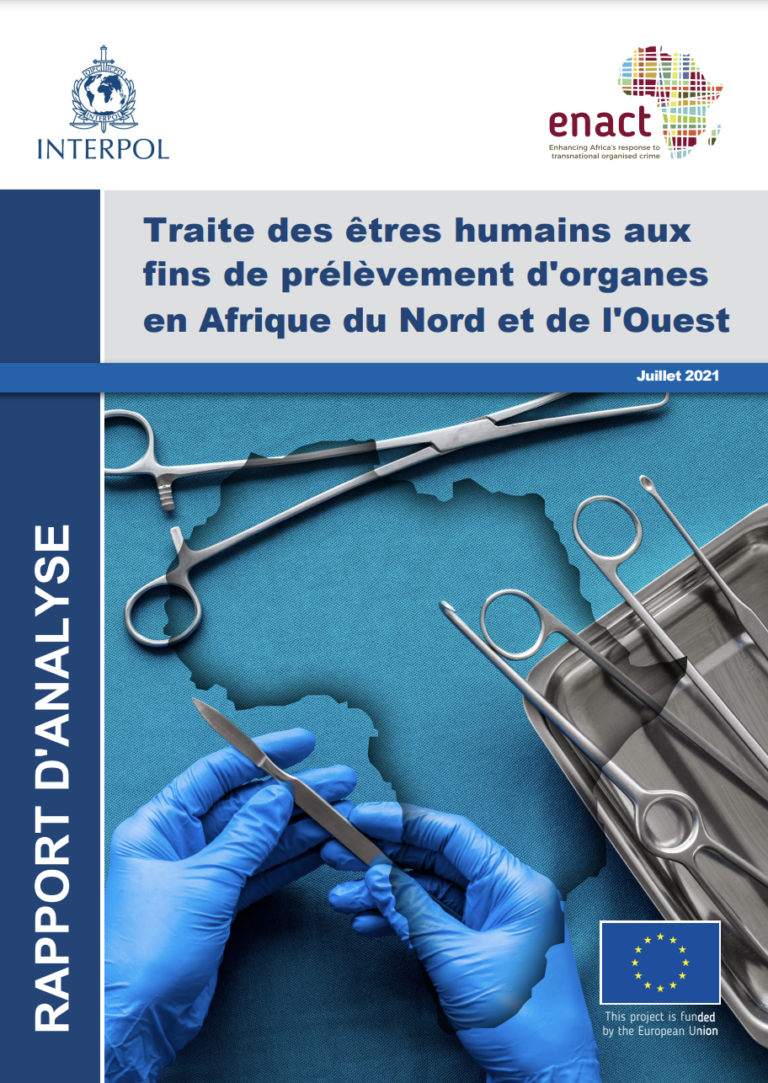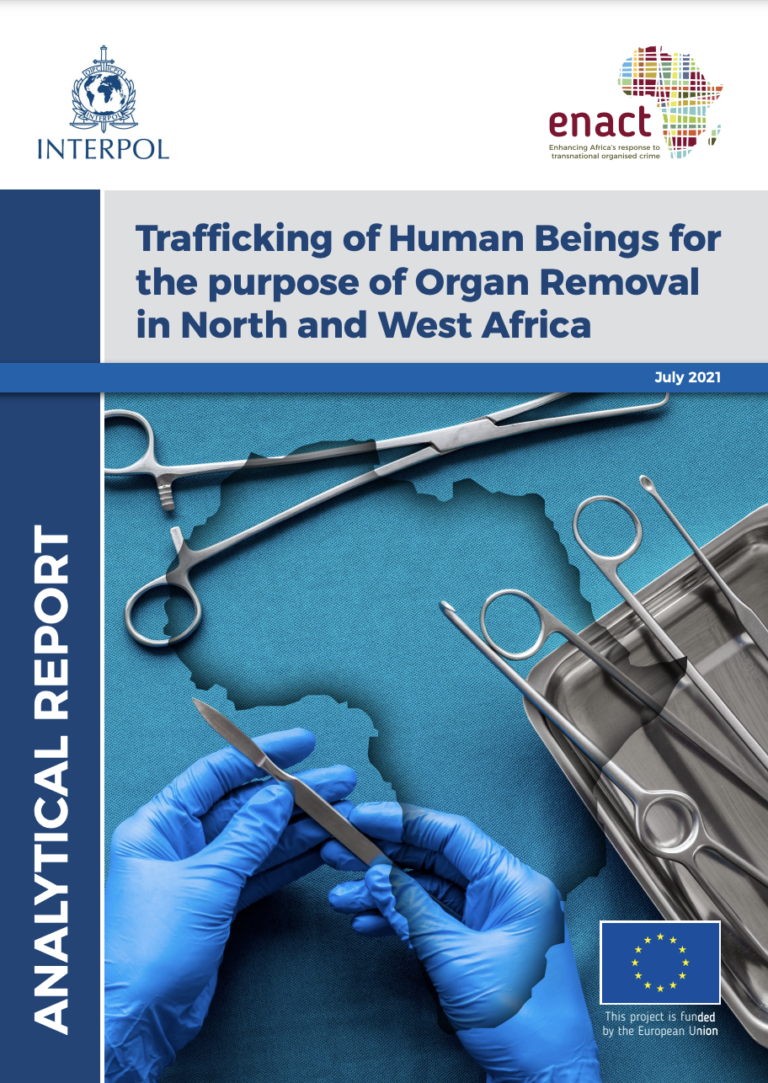This report from INTERPOL assesses the problem of trafficking in human beings for organ removal (THBOR), which is driven largely by the global shortage in organs for ethical transplant. While organ trafficking exists in all regions of the world, it is of particular concern in North and West Africa where impoverished communities and displaced populations are at greater risk of exploitation.
The strategic assessment report, produced as part of Project ENACT, provides insight and analysis into the issues, to enable law enforcement agencies in North and West Africa to devise the appropriate responses.
The report is available in English and French.


